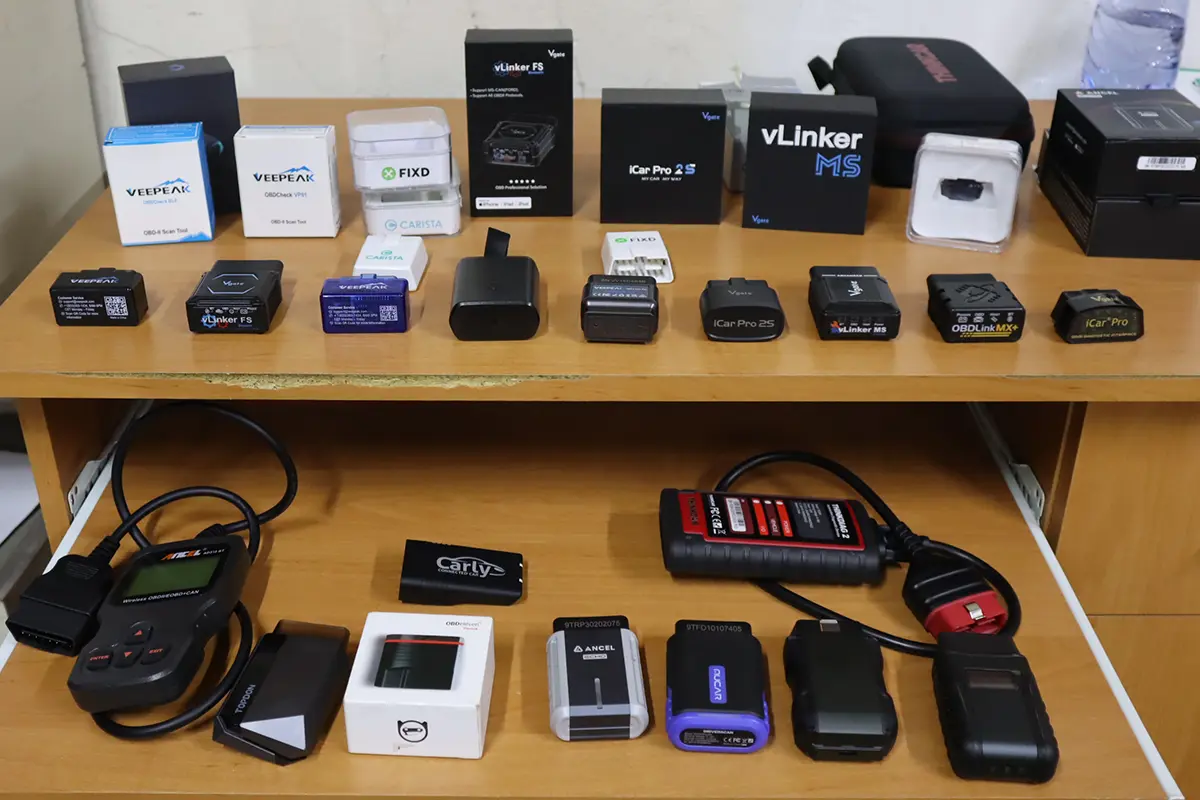The P021D: Cylinder 10 Injection Timing refers to a problem with the timing of the fuel injector in cylinder 10. This issue can be caused by incorrect timing of the injector, a faulty fuel injector, problems with the timing chain or belt, or a malfunction in the Powertrain Control Module (PCM). In simple terms, when this code appears, it indicates that the fuel injector for cylinder 10 is not operating at the correct time, which can affect the engine’s performance.
P021D – Quick Overview
| Meaning | P021D: Cylinder 10 Injection Timing |
| Is it serious? | Yes, this code can be serious as it can lead to engine misfires, reduced performance, and potential damage to the engine if not addressed promptly. |
| Possible causes | – Incorrect timing of the fuel injector for Cylinder 10 – Faulty fuel injector – Timing chain or belt issues – Faulty PCM |
| How to diagnose? | – Check the timing of the fuel injector for Cylinder 10. – Inspect the timing chain or belt for proper alignment. – Test the fuel injector using a scan tool. – Replace or repair any faulty components. |
P021D Meaning
The P021D: Cylinder 10 Injection Timing means that there is a problem with the timing at which fuel is being injected into cylinder 10. This could be due to a timing issue with the injector itself, a problem with the timing chain or belt, or a malfunction in the vehicle’s computer system. When this code appears, it suggests that cylinder 10 is not receiving fuel at the correct time, which can lead to engine misfires and reduced performance.
Step-by-step diagnostic guide
Follow the outlined procedure to diagnose this DTC by eliminating possible causes one by one.
| Action | Description | Tools Needed |
|---|---|---|
| Check for Other Codes | Use an OBD-II scanner to check if there are any other related codes present. These might give additional clues about the problem. | OBD-II Scanner |
| Check Injector Timing | Verify the timing of the fuel injector for Cylinder 10 using manufacturer specifications. Adjust if necessary. | Timing Light, Manufacturer’s Specifications |
| Inspect the Timing Chain or Belt | Visually inspect the timing chain or belt for any signs of wear, misalignment, or damage. | Flashlight, Safety Gloves |
| Test the Fuel Injector | Use a scan tool to test the operation of the fuel injector for Cylinder 10, ensuring it is functioning within the specified range. | Scan Tool, Multimeter |
| Inspect the PCM | Check the Powertrain Control Module for any faults or issues with its connections. Reprogram or replace if necessary. | OBD-II Scanner, Multimeter |
| Repair or Replace Faulty Components | If any components are found to be faulty or damaged during inspection, repair or replace them accordingly. | Replacement Parts, Basic Hand Tools |
| Clear the Code and Test Drive | After completing repairs, clear the P021D code using the OBD-II scanner and take the vehicle for a test drive to ensure the issue is resolved. | OBD-II Scanner, Vehicle Owner’s Manual |
| Recheck for Codes | After the test drive, re-scan the vehicle to ensure the P021D code has not reappeared. If the code returns, further diagnosis may be required. | OBD-II Scanner |

OBD-II scanner Buyer’s Guide
- Scanner features explained
- Different types of scanners
- Scanners for coding/odometer/ECU/checks
- Best picks + discount codes

Hi, I am Juraj “Yuri” Lukacko. I got frustrated by unhelpful and scammy mechanics, so I decided to learn everything about car diagnostics myself. I test dozens of new car diagnostic tools every month along with learning new strategies to fix and customize cars. About Juraj Lukacko (Yuri)